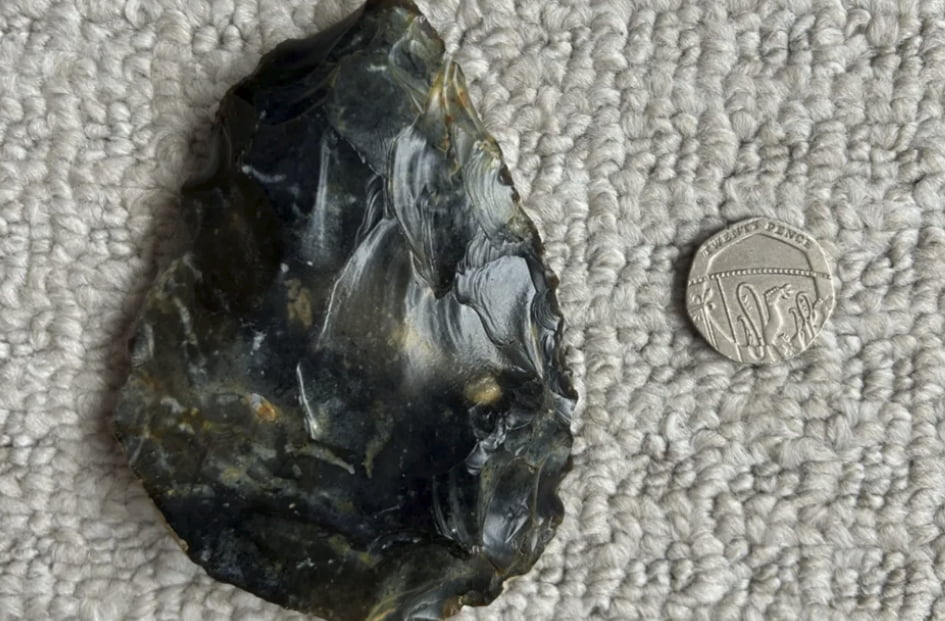
Shoreham, UK – A nine-year-old boy from Shoreham, West Sussex, has made an extraordinary discovery while playing on the beach. Ben, as he is known, stumbled upon a peculiar stone three years ago that he has now learned is a 60,000-year-old Neanderthal hand axe.
The boy, who found the flat, teardrop-shaped stone with a pointed end, was captivated by its unique appearance. He kept it as a treasured possession for three years until a recent visit to a local museum sparked his curiosity. Among the exhibits, he noticed a striking resemblance between the museum's ancient tools and his own find.
Intrigued, Ben approached the museum staff, who were amazed by the boy's discovery. After a thorough examination, archaeologists confirmed that the stone was indeed a hand axe crafted and used by Neanderthals during the late Paleolithic period, approximately 40,000 to 60,000 years ago.
"This is an incredible find," said a spokesperson for the museum. "It's one of the most significant discoveries of the past decade." However, they cautioned that it remains uncertain whether the hand axe was used at the exact location where it was found or was transported there by natural means such as a river.
Ben has generously donated the hand axe to the museum. "I was tempted to keep it," he said, "but I think it's better off in a museum where more people can see it." His mother echoed his sentiments, explaining that seeing the archaeologist's reaction when she showed them the stone made her realize that the discovery should be shared with the world.
Neanderthals, an extinct species of human, are believed to have disappeared around 40,000 years ago. Recent genetic studies have revealed that up to 4% of the human genome can be traced back to Neanderthals.
Ben's discovery highlights the importance of preserving our natural and historical heritage. It also serves as a reminder that even the most ordinary of places can hold extraordinary secrets.
[Copyright (c) Global Economic Times. All Rights Reserved.]






























